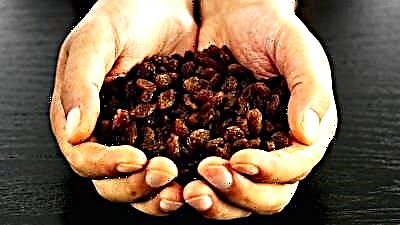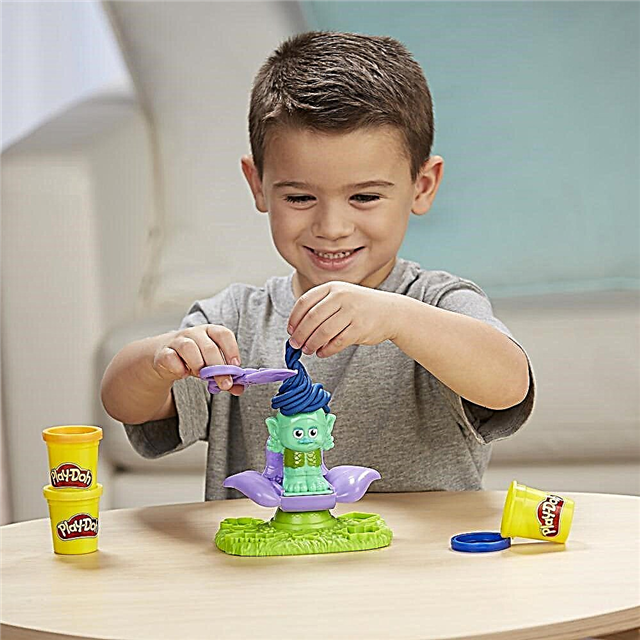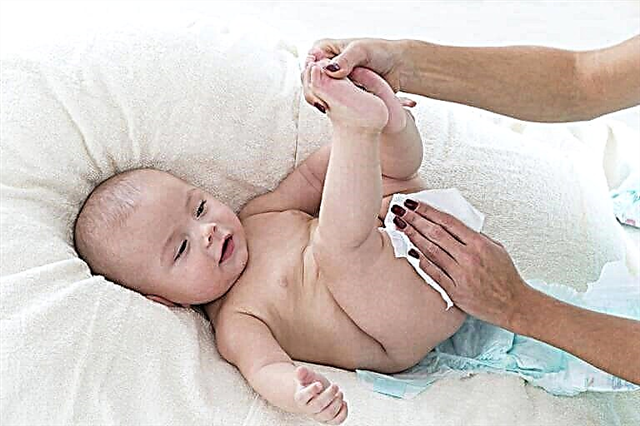
Raisins, which are dried grapes, are considered a healthy alternative to sweets. This type of dried fruit has a pleasant taste that children like, so every mother is interested in how old you can give your baby raisins and how useful such a product is for the child's body.

Benefit
When dried, the grapes retain almost all the minerals and most of the vitamins.
- Raisins are a source of glucose and fructose, therefore such a product will give the child energy to learn about the world around him.
- Dried grapes are rich in B vitamins, ascorbic acid, vitamin E, manganese, selenium, zinc, potassium, phosphorus, iron and many other compounds valuable for the child's body.
- The properties of raisins are noted to support the correct growth of the child's body and immune function, as well as the work of the heart muscle.
- The use of such dried berries has a positive effect on the condition of the skin, bones, teeth and nails.
- A decoction of raisins helps compensate for fluid loss during fever or vomiting. It is also recommended for acetone in children, with frequent colds, bronchitis, digestive disorders or vegetative-vascular dystonia.
- Due to the high content of potassium, the use of raisins stimulates intestinal motility, which has a mild laxative effect and helps in getting rid of constipation, as well as preventing it.
- Since dried grapes have the ability to improve blood formation, such a product helps in the treatment or prevention of iron deficiency anemia.
- Raisins have a beneficial effect on the nervous system and stimulate brain development. Its use improves sleep and mood.

Harm and contraindications
- Although rare enough, raisins can be allergic.
- Such a product should not be given for flatulence and diarrhea.
- Sometimes a chemical method is used to dry raisins, which reduces the benefits of the product.
- Raisins are contraindicated in diabetes mellitus, as well as stomatitis.
- The high carbohydrate content and high calorie content make such a product undesirable and overweight.
- Raisins can be contaminated (when rinsing with water, shriveled berries are poorly washed), which will provoke an intestinal infection.
- Overeating raisins may cause nausea, flatulence, itchy skin rash, and diarrhea.
Sometimes children like raisin compote so much that they begin to give up regular water. To solve this problem, you should gradually reduce the amount of raisins when preparing compote.

At what age can you give?
Dried grapes in their pure form are recommended to be given to children who are 1.5-2 years old. Earlier acquaintance with raisins can be dangerous for babies, because due to the absence of teeth or their small number, the baby cannot chew the berries well, which increases the risk of choking.
In addition, the digestive tract of children under 1.5 years old can hardly cope with the digestion of dried fruits.
Therefore, a one-year-old child should not be given raisins.
Babies over 6 months old are allowed to offer raisins in the form of compote or broth. These drinks can be prepared on their own or bought in a store, for example, the Agusha compote made from apples and raisins with dried apricots, allowed for feeding babies over 8 months old, is suitable.
When cooking at home, other dried fruits can be added to the raisins when the child is 1 year old.

Introduction to the diet
Having prepared a decoction or raisin compote for an infant, give the baby only one spoonful of such a drink for the first time. It is preferable to do this for breakfast, so that by the end of the day it is clear whether the baby has tolerated the new product normally. Further, the volume of drinking can be gradually increased up to age norms.
Children over 1.5 years old can be given several pieces of raisins if:
- The child has enough teeth to chew on the berries.
- The kid does not indulge during meals, but behaves calmly.
- The crumbs are able to hold small objects with their fingers.
- The child has learned to chew food quite well.

Dried grapes over the age of 1.5 years can be substituted for sweets by adding such a product to casseroles, cereals, baked goods and other dishes.
How to prepare a decoction and infusion
With the help of a decoction made from raisins, you can diversify the child's menu, improve the baby's sleep and strengthen his immunity. It is very simple to prepare such a drink - rinse with 200 g of raisins, pour a liter of water and cook over low heat for about 20 minutes. Sugar is not added to the broth, since even without it the drink will be tasty and sweet. After straining, the broth is cooled and only then given to the baby from a sippy cup or bottle.
If you substitute 100 g of raisins for 100 g of prunes in this recipe, you get a decoction with a slight laxative effect. Such a drink should be treated to a crumbs who have problems with the work of the digestive tract. Like a decoction of raisins, a drink with the addition of prunes helps to increase the defenses of the child's body.
If instead of prunes, you take 100 g of dried apricots, you get a decoction with a rich taste and a pretty color. It is advised to give it for colds, as well as to quench thirst and hunger. In the case when such a drink from dried apricots and raisins seems too sweet to mom, it can be diluted with clean water.

Dr. Komarovsky advises to brew raisins in a thermos, following this proportion - a glass of boiling water for a tablespoon of raisins. The drink will be ready in 30-40 minutes. A popular doctor recommends giving such an infusion to children with elevated acetone or high temperatures, if there is a risk of dehydration, since many kids drink this drink more readily than ordinary water and saline solutions.
See the doctor's commentary on raisins and a decoction in the next video.
How to cook compote
To cook raisin compote for a child, dried berries are taken in the same proportion as for the broth. The only difference will be the cooking time, since the compote takes longer (up to an hour). It is not necessary to sweeten the compote, but if you wish, you can add a little honey to it.
To diversify the taste, you can boil prunes, dried apples, black currant leaves and other ingredients along with raisins.

Tips for choosing
When buying raisins for a child, be careful and picky:
- The product must be dried in the shade (no chemicals are used in this drying).
- There should be no seeds in raisins (buy a variety of raisins).
- The fruits should be dull (if the berries are shiny, this is evidence of oil processing).
- The presence of tails on the raisins indicates the greater usefulness of such berries.
- Raisins should be free of debris and mold.
Purchased raisins should not be given to a child without prior preparation. Scald the berries in boiling water, and then soak them in warm water for 30 minutes. After thorough rinsing and cleaning from the tails, steamed dried fruits can be offered to the baby without fear.

For more information on the properties of raisins, see the program "Living Healthy".
Find out if your child's weight is normal using the following calculator.



